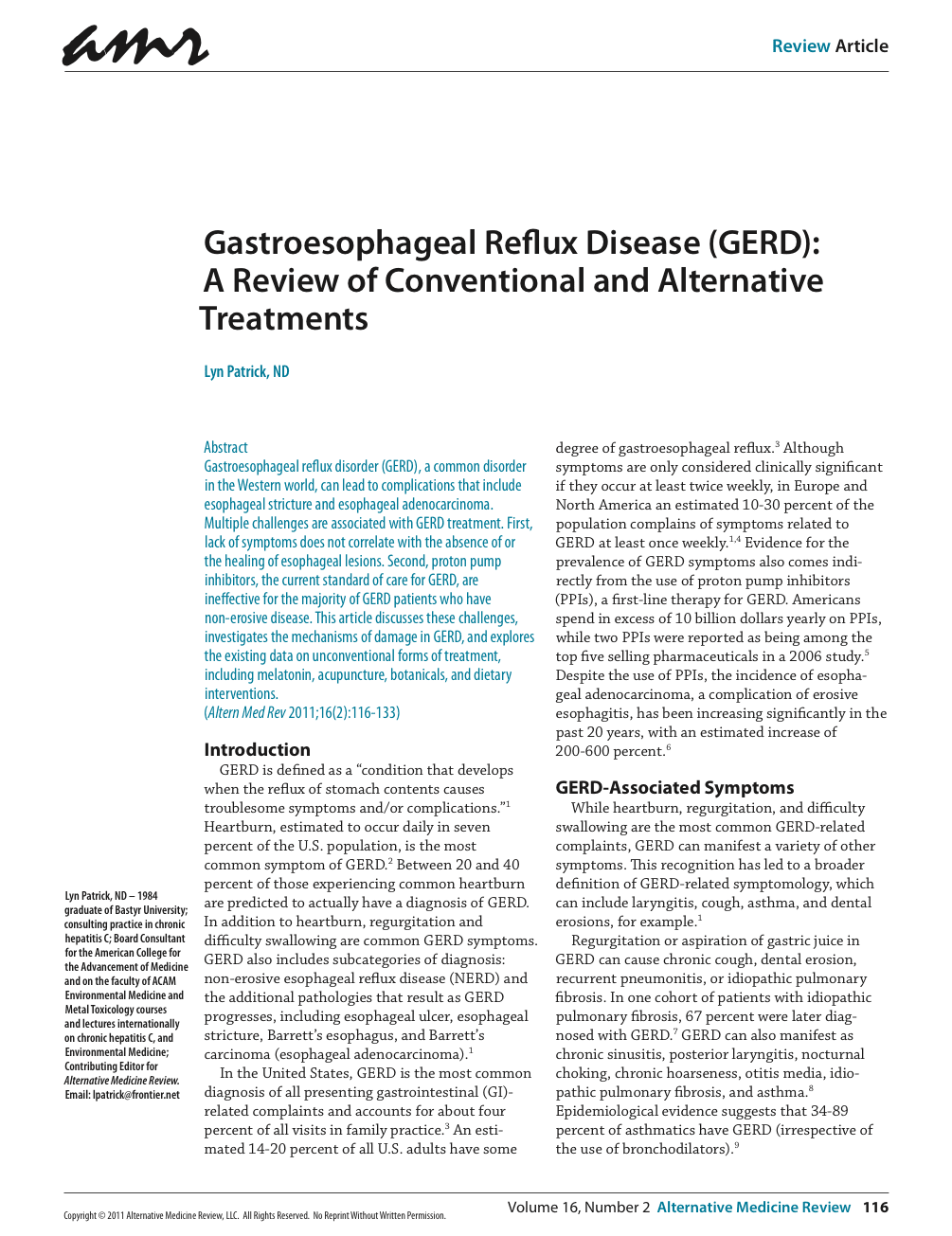Abstract
Gastroesophageal reflux disorder (GERD), a common disorder in the Western world, can lead to complications that include esophageal stricture and esophageal adenocarcinoma. Multiple challenges are associated with GERD treatment. First, lack of symptoms does not correlate with the absence of or the healing of esophageal lesions. Second, proton pump inhibitors, the current standard of care for GERD, are ineffective for the majority of GERD patients who have non-erosive disease. This article discusses these challenges, investigates the mechanisms of damage in GERD, and explores the existing data on unconventional forms of treatment, including melatonin, acupuncture, botanicals, and dietary interventions. (Altern Med Rev 2011;16(2):116-133)







